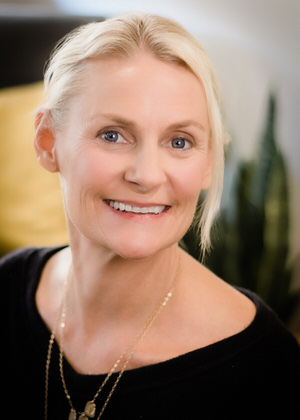Get the Right Help to Feel Better – Call (650) 461-9026 or Text (650) 461-9026
Sarah Newman, AMFT, APCC

Ages: Adults (18+ years)
Teens (14-17 years)
Pre-Teens (12-13 years)
Children (6-11 years)
Sarah Newman, AMFT, APCC
Sarah is an active and engaged therapist, focusing on helping clients transform their lives. Whether it is getting unstuck from what is not working, improving challenging thought patterns and behaviors, developing better cognitive and emotional skills, or cultivating new habits that align with their values, her primary focus is always on creating a safe, collaborative, creative, humorous and supportive relationship between herself and the client.
Sarah has over ten years of experience helping others relate to their experiences and live their best lives. Before becoming a therapist, along with spending two decades as an elementary school teacher, Sarah started The Mindful Kids, a coaching program designed to provide people with access to mindfulness skills and positive psychology practices to help them manage their challenges and flourish in their lives.
Sarah combines evidence-based practices, including Cognitive Behavioral Therapy, Acceptance and Commitment Therapy, and Mindfulness, with a heart-centered approach. She strives to help others see themselves and their situations more clearly, understand their struggles and the way their mind works, and ultimately help them make the necessary changes to move forward. Witnessing the change and transformation of her clients is priceless, and she cannot imagine doing anything else.
Sarah is an Associate Marriage and Family Therapist and an Associate Professional Clinical Counselor. She enjoys and has experience working with children, teens, adults, and families who struggle with a wide range of issues, including anxiety and OCD, stress, depression, relationship issues, behavioral issues, and ADHD.
Concerns:
- Anger
- Anxiety
- Attention-Deficit Disorder (ADHD)
- Behavioral Difficulties
- Depression
- Family Problems
- Hair Pulling (Trichotillomania)
- Life Transitions
- OCD
- Panic Attacks
- Parenting and Discipline
- Phobias
- Skin Picking
- Social Anxiety
- Stress
- Women’s Issues
- Work/Career
Certifications:
- Acceptance and Commitment Therapy (ACT)
- Couples Therapy- Emotionally Focused Therapy -Sue Johnson
- Mindfulness
Intensive Study/Specialization:
- Acceptance and Commitment Therapy (ACT)
- Attachment
- Cognitive Behavioral Therapy
- Family Therapy
- Motivational Interviewing
- Play Therapy
Marriage and Family Therapists are mental health professionals trained in psychotherapy with a family systems influence, and licensed to diagnose and treat mental and emotional disorders that affect individuals, couples, and families. The Federal government has designated marriage and family therapy as a core mental health profession along with psychiatry, psychology, social work and psychiatric nursing. The State of California support and regulate the profession by licensing MFTs.
Educational requirements
Marriage and Family Therapists have graduate training (either a masters or doctoral degree) in counseling psychology with an emphasis in marriage and family therapy. Prior to a rigorous exam process leading to licensure, LMFTs must complete at least 3,000 hours of post-graduate clinical experience under the supervision of a licensed mental health professional. Before full licensure, LMFTs are called “Associates”. LMFTs are employed in a variety of private and public settings, including private practice, community mental health centers, and behavioral managed care organizations.
Do LMFTs only work with clients who are having problems in their marriages and families?
No. While LMFTs are qualified to do couples and family therapy, most LMFTs work with individual adults to not only enhance the quality of their relationships, but also decrease symptoms of anxiety, depression, and stress.
How can a LMFT help me?
Like other mental health professionals such as social workers, psychologists, and psychiatrists, LMFTs help clients by diagnosing and treating common emotional and behavioral difficulties that interfere with functioning at an optimal level. LMFTs use empirical-supported counseling techniques to help their clients achieve desired goals.
Professional counselor education and training standards for licensure are on par with marriage and family therapists and clinical social workers, the other two master’s level mental health providers in the state. Requirements for California’s Licensed Professional Clinical Counselors (LPCCs) include:
- Possession of a 60-unit master’s or doctoral degree in counseling, or a closely related degree, from a regionally accredited or “approved” institution of higher education that includes certain core content areas
- Completion of a minimum of 3,000 hours of post-master’s supervised clinical experience, performed over two years, and continuing education hours for renewal (Before full licensure, LPCCs are called “Associates”.)
- Passage of the National Clinical Mental Health Counselor Examination (NCMHCE) and a California Law & Ethics Exam
- Adherence to a strict Code of Ethics and recognized standards of practice, as regulated by California’s Board of Behavioral Sciences
How can a LPCC help me?
Like other mental health professionals such as social workers, psychologists, psychiatrists, LMFTs, LPCC’s help clients by diagnosing and treating common emotional and behavioral difficulties that interfere with functioning at an optimal level. LPCC’s use empirical-supported counseling techniques to help their clients achieve desired goals.
